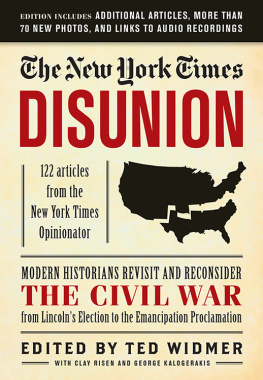
THE TIMES OF THE SEVENTIES
The Culture, Politics and Personalities that Shaped the Decade
Edited by Clyde Haberman

Copyright 2013 The New York Times
All rights reserved. No part of this book, either text or illustration may be used or reproduced in any form without prior written permission from the publisher.
Published by
Black Dog & Leventhal Publishers, Inc.
151 West 19th Street
New York, NY 10011
Distributed by
Workman Publishing Company
225 Varick Street
New York, NY 10014
Cover design by Evan Gaffney Design
Cover images courtesy of Getty Images and Shutterstock
Interior design by Pauline Neuwirth, Neuwirth & Associates, Inc.
Interior images courtesy of Getty Images.
ISBN-13: 978-1-60376-333-2
eISBN: 978-1-60376-333-2
Library of Congress Cataloging-in-Publication Data available upon request.
Contents
Introduction
A soldier coming home to New York in early 1970 after 16 months of overseas duty felt as if he had entered a strange land. Sixteen months is not a long time, yet in that stretch the world seemed to have somehow tilted 15 degrees, rendering it all but unrecognizable. People even looked different. Many men suddenly wore their hair long. They sported beards and mustaches. They wore wildly colored clothes. Sure, long hair and psychedelic outfits had been part of the scene for a while. But those fashions were largely the province of political radicals and kids referred to, not always kindly, as hippies. Now, stockbrokers and insurance agents went around like that. Theres something happening here, ran the lyrics of a popular Buffalo Springfield song. That there was. The returning soldier sensed that this decade, still in its infancy, would usher in a thorough break from much of the past.
The Sixties, for all its acclaim, did not begin as a true departure from the Fifties, notwithstanding the election of a young president; what most people call the Sixties, meaning an era of turmoil and rebellion, did not really begin until 1964 or 1965. But the Seventies lost no time asserting itself as a decade when many of the old verities no longer applied. Clothes and facial hair were one indication. They were also the least of it. In May 1970, students at an Ohio school unfamiliar to most Americans, Kent State University, staged several days of demonstrations denouncing the Nixon administrations expansion of the seemingly endless Vietnam War into Cambodia. The protests were rowdy at times. There was vandalism and rock-throwing. But nothing prepared the students, or the rest of the nation, for what would happen on May 4. After crowds of unarmed demonstrators ignored orders to disperse, Ohio National Guardsmen opened fire. They killed four students and wounded nine others, one of whom was permanently paralyzed. There would be investigations and endless recriminations. But there was no escaping a fundamental, haunting reality of the new decade: What did it say about a country when those who were in charge would shoot their children for doing little more than speaking up?
Mutual trust between the governors and the governed, an essential component of a democracy, had broken down. It would be thus through much of the decade. At the dawn of the 1960s, most Americans believed their government to be honorable and truthful. Not so at the dawn of the 1970s. More and more, people felt they could no longer accept on faith what their leaders said. That returning soldier, for example, went back to his old job as a newspaper reporter in New York. It fell to him in September 1971 to write about inmates at the maximum security prison in Attica, N.Y., who rioted, took prison employees hostage and then turned the chaos into an extraordinary rebellion stretching across four days. It ended with dozens of inmates and their hostages being killed when state policemen stormed the rebels, firing indiscriminately as they retook control. The authorities insisted that the troopers moved in only after the insurrectionists had begun slashing hostages throats, even castrating one of them. A day later, autopsies showed that not a single hostage had been killed by the inmates. No one had been castrated. The troopers did all the killing. The young reporter could not shake off a question that would stay with him and with many others forever: If officials could lie so blatantly about something like that, when the falsehoods could be scientifically discredited in short order, was there anything they said that could be taken at face value? All too often in the 70s, the answer was no. It was an era when doubting authority became, for many, a default position.
This was the decade of the Pentagon Papers, a government history that fell into The New York Timess hands and traced a trail of deceit that had drawn the United States ever deeper into an unpopular war in Vietnam. It was the decade of slain Israeli athletes at the Munich Olympics, when the self-absorbed, tone-deaf head of the International Olympic Committee publicly fretted not about the deaths but about the inconvenience they created for his precious Games. It was the decade of oil embargoes and soaring gasoline prices, with many in the West convinced they were being taken for a ride by OPEC and Big Oil. It was the decade when the mad-dog Khmer Rouge took control in Cambodia and slaughtered two million or more of their countrymen in a genocidal frenzy. And it was, to be sure, the decade of Watergate, the catchall word for an assortment of government misdeeds, lies and cover-ups that forced a president to resign and left little doubt that Americans could not take for granted that those who led them were men of honor.
Not that it was all bleakness. Hardly. Medical breakthroughs and new technologies, like computers that grew in use, made life better. There were glorious improvements in the food people ate, daring writing in the movies and television shows they watched, exciting new records set by the athletes they cheered. But an abiding cynicism took root, one captured well by the decades Godfather films, widely regarded as among the greatest of all time. Though set in the 1940s and 50s, they offered insights into latter-day corruption in government and business, as much as in organized crime. Michael Corleone, son of the supreme mob boss, says to the woman he would marry, My father is no different than any powerful man, any man with power, like a president or senator.
Do you know how nave you sound, Michael? she says. Presidents and senators dont have men killed.
Oh, he replies. Whos being nave, Kay?
As the 1970s wore on, Americans lost whatever innocence they still had about the questionable ways in which power was often exercised. But they also resigned themselves to life as it was. That weariness was captured in another 70s movie set in an earlier era, a brilliant work about a private eye in 1930s Los Angeles who stumbles upon deeply embedded corruption. He is forced to accept his helplessness in changing things when a colleague says to him, Forget it, Jake. Its Chinatown.
National

In many ways, the seventies took a back seat to its more celebrated cousin, the sixties. But what many Americans think of as part of the tumultuous sixties in fact reached fulfillment in the seventies. From the decades start, the wheels seemed about to come off the wagon.
Next page









